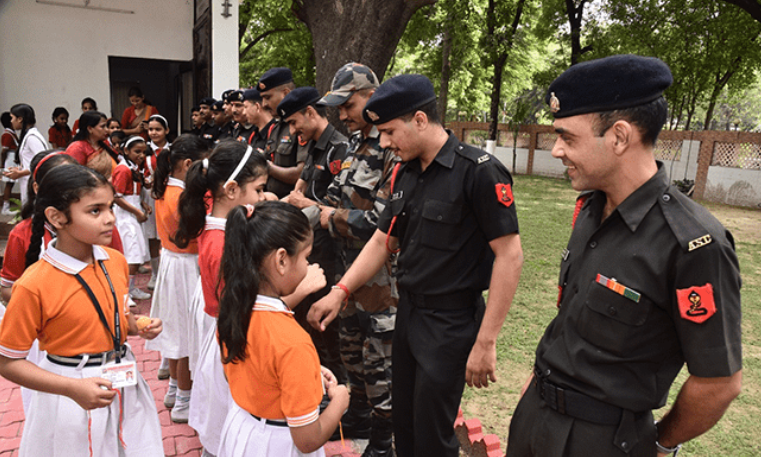
By Abhik Bhattacharya / Outlook India
Since Rishi Sunak took over as the first Indian-origin Prime Minister of the UK, there has been enormous enthusiasm among Indians both at home and host countries. Though Sunak’s direct connection to India is limited to his in-laws- the Murthy’s, people across the country found an Indian representation in him. However, this effort to locate Indian culture in Sunak is more inclined to uphold his Hindu credential than any of his stance that seems to favour India.
An ardent supporter of Brexit and subsequently of British Nationalism, Sunak has been a devout Hindu. His cow worshipping to the flexing of sacred thread gave a sort of legitimacy to the Indian Hindu diaspora who were looking for a leader with a combination of traits that represent both western modernity and traditional Hindu values.
In the last few years, India’s transition into a majoritarian Hindu nation has been in constant conflict with modern democratic values like liberalism and secularism. So, despite several efforts, campaigns and promotions, the ideals of ‘Vishwaguru’ couldn’t contain within it the ideals that modern societies and nations adhere to. Against this backdrop, the emergence of a Hindu leader in the UK comes as a boon.
For the Indian Hindu diaspora in first-world countries like the US and the UK, Sunak is the ‘poster boy’ – An Oxford-educated supporter of merit-based privileges with broad financial and cultural entitlements sprinkled with Hindu traditions and nationalist ideals. The nationalist ideals of the Tory party that led to Brexit bear a sense of lost glory that must be revived to make Britain great again. Such a revivalist approach could be found both in Donald Trump’s US and Modi’s India. This supremacist nationalist ideals, although for his own country – the UK, with an image of a devout Hindu is what makes Sunak the favourite of the Indian Hindu diaspora.
Sunak’s selection to the top post coming months after the Leicester riots that questioned the secular credential of the UK makes it more significant. For the Hindutva forces across the world, he is another ‘Hindu Hriday Samrat’ (the king of Hindu hearts) after Modi. However, seeing the fanfare that Sunak has among the Indian Hindu diaspora along with their support for BJP in the home, the question comes- how did the ideals of Hindutva make such a strong root among the Indian Hindu diaspora? Is it coincidental with the emergence of Modi in India or has it been a concerted long-drawn effort of the RSS that is now bearing fruits? Several kinds of research have been conducted to find the roots of the spread. A throwback to the existing literature shows for how long it has been operative. Our focus will be mostly confined to the US and the UK as the most powerful Indian Hindu diaspora stays in these countries. Do they actually have political power or is it a Hindutva hoax?
It is wrong to say that the ideology of Hindutva, mostly promoted by Rashtriya Swayamsevak Sangha (RSS) and founded by V D Savarkar in 1920s, extended its branches across the world without any organisational effort. Researches show there have been efforts by the Hindutva groups like RSS, Vishwa Hindu Parishad (VHP) and other organs for decades that resulted in spread of Hindutva ideals. One of the major organisations that actively worked behind it is Hindu Swayamsevak Sangh (HSS).
Known as a wing of RSS, this organisation was founded in January 1947. The story goes that one Jagadish Sharada Shastri on his way to Africa in a ship with other Indians once felt like reciting the RSS prayers – ‘Namaste Sada Vatsale Matri Bhume’. As he ended his prayers, he found several other people on board already joined him. This made him realise the importance of Sakha in the host countries. Subsequently, he formed Bharat Swayamsevak Sangha in Kenya. In a few years it was renamed as HSS.
In the UK, the HSS established its roots in 1966 whereas in the US it came into shape in 1989. According to the reports by journalist Ashutosh Bharadwaj in 2016, at least 1000 shakhas of the organisation are weekly held across the globe where people from different age groups participate and get trained.
This story was originally published in outlookindia.com. Read the full story here






